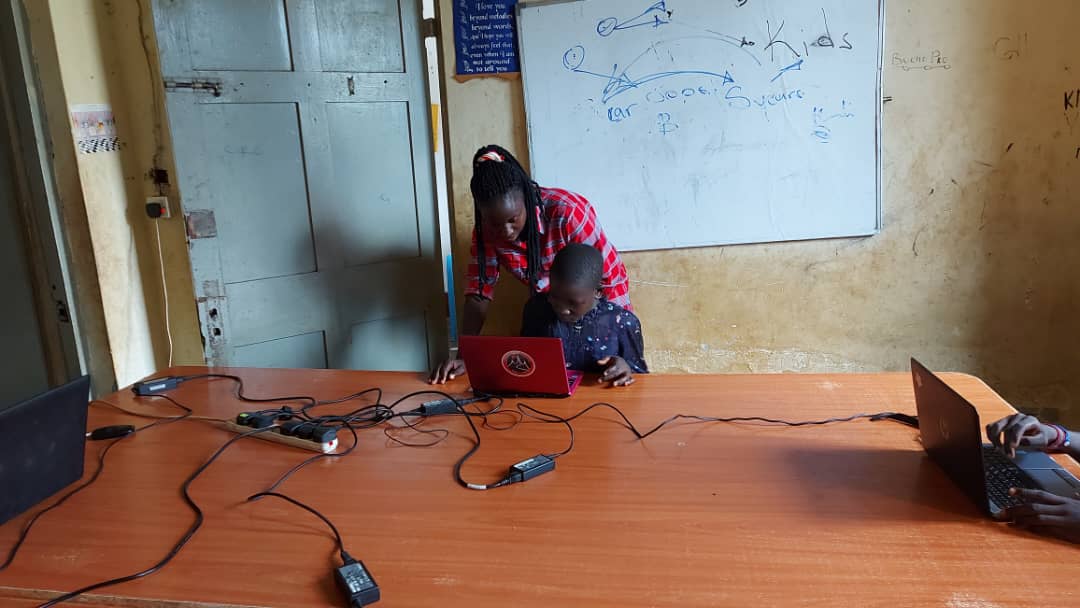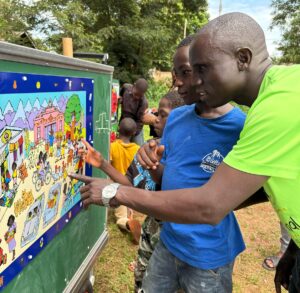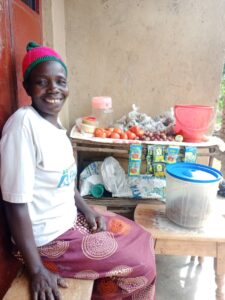Peace can be defined as an agreement and harmony among people and a state or period in which there is no war or war has ended. In the world right now, there are ongoing wars or minor conflicts in around three dozen countries, highlighting the important need for peace. Therefore, this month, the children S.A.L.V.E supports in Uganda asked our global supporters:
How can we promote peace in our communities?
The debate produced a good conversation, with many thoughtful contributions such as Isaac’s who emphasised the importance of peace promotion activities. Isaac stated, “If you are a member of a religious community, ask how you can get more involved in promoting peace through its programs and ministries.” Whereas fellow contributor Bena recognised the value of volunteering for peace corporations in order to achieve peace. Importantly, Solo advocated that community members should continue to support the programmes that try to prevent violence with funding.
Education was perceived by debaters as a valuable tool in promoting peace in our communities. Swalki suggested that young people should be educated on how to be kind to the vulnerable. Mirembe also pointed towards the role of education: “Educate yourself, and others about injustices and inequality about peace”. Further Josiah brought forward the practical suggestion of reading books to enhance education on peace: “Read books about peace and recommend them to your friend.”

In addition, justice was highlighted as important in promoting peace. A debate contributor stated that in order to have peace within our community, we need a justice system that works well. If there is corruption within the police and justice system, then communities will end up taking justice into their own hands, using mob violence. Also, regarding justice, Mbubi from Uganda, urged the need for an increase in restoration justice programs in schools and communities that focus on healing rather than punishment.
Wakawoli Abdullah looked towards the government in promoting peace in our communities: “The government need to create and emphasise laws that honour peace and unity”. Alternatively, another debate contributor suggested that in leadership, more roles should be given to women. This idea was supported by Nicola who shared that there is lots of evidence of women helping to promote peace within their communities.
How should we treat people to promote peace?
Anti-discrimination was a clear theme throughout the debate. David believed in speaking out against prejudice and discrimination when you see it. Likewise Rose from Uganda claimed we should love all people the same way regardless of their race, tribe gender or education background. This was further supported by Nakato who asserted: “Treat all people with kindness regardless of race, gender, orientation, religion.”
Certain debate respondents believed in demonstrating forgiveness towards others to help produce peace in our communities. One individual stated: “forgive others, even longstanding enemies in order to maintain a peaceful state of mind”. In addition, Shakim believed in considering people who hurt your feelings as your personal teachers of how to maintain a peaceful nature. However, this was raised as something that was not easy to do by fellow debater.
Finally, a message of ‘love’ was echoed throughout the conversation of producing peace. “Peace and Love, this is all we need and deserve”, said Sarah. It was also said that “Love is caring for each other even when you’re angry.” As well, Yowsai believed that if you give love and peace, you get love and peace back. Whereas John focused on self-love, suggesting that if you practice self-love and care, you can radiate goodness on to others, and achieve peace.
This discussion has produced several helpful recommendations for how we might foster peace in our communities. Firstly, participants in the debate emphasised the importance of peace promotion efforts in bringing communities together. Several debaters highlighted the significance of education in enlightening people about injustices, inequities, and peace. Furthermore, the role of justice in promoting peace was discussed, with a focus on combating corruption and expanding restoration justice programmes. The role of government and leadership was also examined, with debaters arguing that governments should pass laws promoting peace and harmony, and that more women should hold positions of leadership. Finally, how we should treat people to help produce peace in our communities was discussed, with the need to demonstrate anti-discrimination, forgiveness and love.
Get involved
Join us for our next thought-provoking debate at any time this month or during our live session on Thursday 27th October.





0 Comments